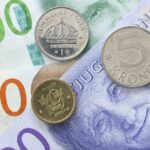US dollar slid to its lowest point in seven months against the Swiss franc on Thursday, as the Swiss National Bank (SNB) reached a decision to leave its monetary policy without change.
USD/CHF fell to a session low at 0.9091 at 8:33 GMT, also the pairs lowest point since February 7th, after which consolidation followed at 0.9094, losing 0.30% on a daily basis. Support was likely to be received at February 7th low, 0.9066, while resistance was to be met at August 28th high, 0.9235.
The Swiss central bank decided today to leave its benchmark interest rate unchanged at levels close to zero, meeting expectations. The targeted interest rate level remained within the 0.00%-0.25% range. The Swiss National Bank (SNB), governed by President Thomas Jordan, also kept its ceiling on the Swiss franc at 1.2000 per euro. Stressing on the risk of deflation and recession, the SNB imposed the ceiling in September 2011, after market players, anxious about the region’s sovereign debt crisis, pressed the franc up, close to parity with the euro. The franc is usually used as a safe haven currency at times of political and economic turmoil.
“The risk of less favorable global economic developments has decreased somewhat compared to the last quarter,” the central bank said in a statement on its website today. “Nevertheless, structural problems in Europe persist, which could cause new tensions on the markets.”
Despite the franc has lost 2.2% against the common currency during this year, as the Euro zone was recovering, it is still over 20% higher than it was in September 2008, when Lehman Brothers Holdings Inc. went bankrupt. Bloomberg reported, that a gauge in the SNB’s monthly bulletin on the Swiss franc’s trade-weighted strength showed the franc was overvalued by nearly 11% in the month of July. The central bank revised up its consumer price inflation outlook, stating that the index of consumer prices will improve to -0.2% from -0.3%, as predicted earlier.
In addition, the Swiss government revised up its growth forecast for 2013, due to increasing consumer spending, but it also said that export-oriented industry was still facing difficulties, despite the recovery process in the single currency bloc, as the latter is Switzerlands major trading partner. The government agency SECO said that the Swiss Gross Domestic Product was likely to increase by 1.8% this year, which was a revision up from a 1.4% growth, according to the previous estimate. 2014 forecasts have also been revised up to a growth of 2.3% from a 2.1% expansion previously. The government made this decision, citing that unemployment rate in the country was expected to drop additionally in 2013 and 2014.
Meanwhile, the franc was little changed against the euro, with EUR/CHF cross adding a mere 0.02% today to trade at 1.2336 at 9:13 GMT. GBP/CHF pair, on the other hand, was losing 0.72% for the day to trade at 1.4622 at 9:15 GMT.





